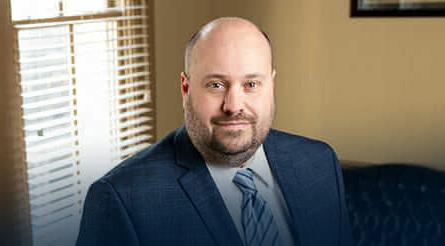Medicaid
What is Medicaid Coverage? How does Medicaid Insurance work?
Medicaid is the payor of last resort – it pays when there is no one else left to pay. Medicaid is a needs based program; if you meet the financial and other requirements, you are entitled to the benefits of the program.
Medicaid is both a Federal and State program. The Federal government created the program and pays a portion of the bills. The States, subsequently, built their own programs based on the Federal rules. Each State, consequently, has their own specific rules, meaning that Medicaid insurance regulations vary from State to State.
Medicaid’s basic philosophy is that the nursing home resident, and his or her spouse, should pay for that resident’s nursing home care before the taxpayers are required to assist. Unless you know the rules and know how to use them to your advantage, then the common result is that if you have worked your entire life, lived carefully, paid your taxes, saved for retirement, and played by the rules, you will go broke in a nursing home before Medicaid will agree to help.
Federal law does not require such a punishing outcome. State administrators, however, often enforce local customs not found in the Federal Medicaid Law that results in families losing their life savings to the nursing home.
What are the qualifications to receive Medicaid?
There are certain preliminary requirements to obtain Medicaid eligibility for some or all of Nursing Home monthly charges. You need to be in a Nursing Home, not in Assisted Living or Independent Living or Personal Care. You also need to require the level of care called “skilled nursing care” and you need to be in a Medicaid bed. The State allows each Nursing Home to have a certain number of Medicaid eligible beds – if the Nursing Home already has its quota of Medicaid residents, you will not get Medicaid coverage even though you are personally Medicaid eligible.
The last qualification for Medicaid Insurance is financial. Medicaid breaks financial qualifications into two large categories – married with a Community Spouse, and single. A Community Spouse situation is one where one spouse is in a Nursing Home and one is not. The spouse who lives in the community is called the “Community Spouse.”
Medicaid defines singles as never married, widowed, or divorced. A married couple can also be considered single when both spouses are confined to a Nursing Home. In that situation, for Medicaid purposes, each spouse is considered to be a single individual.
Under the Medicaid rules, assets are called “resources.” Medicaid allows some resources to be “exempt” or to not count towards what the State expects to be paid to the Nursing Home. The exempt resources differ when there is a Community Spouse and when there is no Community Spouse.
Medicaid looks at all the non-exempt resources and expects some or most of these resources to be “spent down” prior to Medicaid paying for the Nursing Home. When there is a Community Spouse, many of the countable, non-exempt resources may be retained.
Medicaid does not allow a person to give away his or her assets and then come in and claim to be poor. To determine whether a Medicaid applicant has given away “gifts” before applying for benefits, Medicaid has the legal right to look back through five years of financial records of the Nursing Home resident and spouse.
What is Medicaid Spend Down?
Medicaid requires resources, over the amount permitted to be kept by the Nursing Home resident, to be “spent down.”
Medicaid spend down may only be spent on the Nursing Home resident or his or her spouse.
Attorney Gary Banet
 Gary is licensed to practice law in both Indiana and Kentucky. He concentrates his practice in estate planning, estate and trust administration, estate and trust litigation, guardianships, elder law and special-needs planning. Gary earned his J.D. from the University of Louisville, Louis D. Brandeis School of Law, and formerly practiced law at Bingham Greenebaum Doll and Wyatt, Tarrant & Combs. [ Attorney Bio ]
Gary is licensed to practice law in both Indiana and Kentucky. He concentrates his practice in estate planning, estate and trust administration, estate and trust litigation, guardianships, elder law and special-needs planning. Gary earned his J.D. from the University of Louisville, Louis D. Brandeis School of Law, and formerly practiced law at Bingham Greenebaum Doll and Wyatt, Tarrant & Combs. [ Attorney Bio ]







